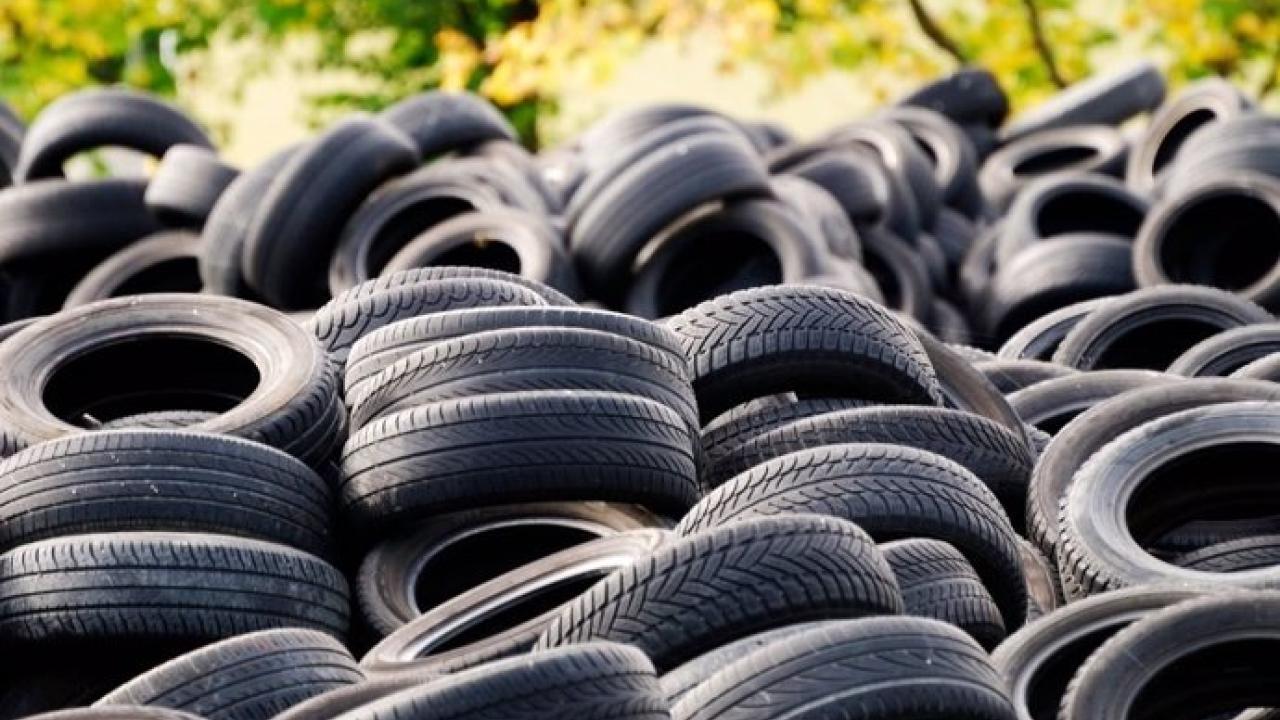
The Argentine government banned the import of tires in 2002 and Uruguay applied a mirror measure that was extended until this year.
Uruguay and Argentina had a long disagreement over the sale of used or retreaded tires that dated back to 2002. From that moment, the conflict went through Mercosur courts and continued in the following administrations of the two countries.
The first step to settle the dispute was taken by Javier Milei's government a few days after taking office; The second was through a decree of the Uruguayan Executive Branch signed days ago.
On December 5, 2002, the definitive closure of Funsa took place, dedicated to the manufacture and replacement of tires and the production of rubber gloves, which had Argentina as one of its main buyers. A few months earlier, in July, the Congress of that country approved law 25,626 that prohibited the importation of retreaded and used tires. The law had only one article and did not attach any explanatory statement.
That was the beginning of a conflict that lasted until this year. At that time, Argentina was already going through an economic crisis that had spread to Uruguay, which caused a collapse in bilateral trade. As the months passed, the crisis was left behind but the tire ban remained in place.
The government of Jorge Batlle appealed the decision in 2005 before the Mercosur Arbitration Court. Uruguay based its approach on commercial reasons and on one of the principles of the regional bloc: the free circulation of goods and services between the countries that comprise it. The claim maintained that the Argentine law violated provisions of international law.
The Argentine defense shared the concept of free movement but stated that the ban was a preventive measure against the potential damage that retreaded tires could cause to the environment.
With the two statements, the court understood that environmental defense could be used as an exception to the general rules of regional integration and those that regulated free trade between the Mercosur countries, thus agreeing with Argentina.
Mirror measurement for tires
Two years later, in April 2007 and in response to the decision endorsed by Mercosur, the Uruguayan government issued decree 1,427 with compensatory measures and set a tariff rate of 16% on the import of new and retreaded tires from Argentina. In practical terms, the decree was a way to hit back at Néstor Kirchner's government. Previously, vehicle covers entered Uruguay without paying tariffs.
The situation turned around and it was Argentina that turned to Mercosur so that an assessment of the Uruguayan decision could be made in that area. In June 2007, the Permanent Review Court of the regional bloc ruled that the compensatory measure was “little more than symbolic” because it was “openly less burdensome” for Argentina than the consequences suffered by Uruguay.
With this last ruling, the dispute in Mercosur ended and things remained as they were: the ban on the importation of covers was maintained and Uruguay continued to apply the differential rate of 16% to those products coming from Argentina.
At that time, tire imports felt the impact. In 2006, prior to the application of the differential rate, external purchases were US$12.9 million. The first origin was Brazil and Argentina came in second place with operations for US$ 2.7 million. Last year, total purchases reached US$34 million, but only US$365,000 corresponded to Argentina.
In parallel, former Funsa workers managed the company and later founded the Cooperativa 7 de Setiembre. Last year it made a single export of woven plies for tires to Brazil for US$ 7,500.
Recent history
In December of last year, the Milei government presented a Decree of Necessity and Urgency (DNU) with which it changed or left without effect more than 360 laws or regulatory texts. One of the repealed laws was 25,626.
That was one of the measures adopted by the current administration to make imports more flexible. Another was the elimination of the Import System of the Argentine Republic (SIRA) and the implementation of the Statistical Import System (SEDI). The new one does not require prior license approval.
“Discretion ends and transparency in the import approval process is guaranteed. That is, whoever wants to import can do so, period,” said the Minister of Economy, Luis Caputo, when he presented the SEDI.
The Uruguayan government took into account the flexibility for tire imports and repealed decree 142. In a new one, dated June 20 of this year, it mentioned that the 2007 decree had aimed to apply compensatory measures.
He added that the DNU of 2023 had repealed the Argentine ban, the main cause of the controversy between the two countries and that is why it voided the collection of the 16% tariff on purchases of new tires from Argentina.
Thus ended the conflict that had started more than 20 years ago.
The Argentine economist Enzo Domínguez Prost recalled in his X account, last December, the short circuit due to used tires.
“Law 25,626 sought to affect a producer in Uruguay who ceased to exist shortly after. In the middle, Uruguay imposed a 16% rate on tires, affecting our exports,” he wrote.
“The affected company, Funsa, went bankrupt and became managed by the workers, but now leaving aside the retreaded tire business. It cost us dearly. Argentina represented 22% of Uruguayan imports in 2006,” the economist concluded.









